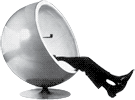C programming
World of typedefs and structs
Normally you declare a struct type Pos as:
struct Pos { int x; int y; };
Then create a variable myPos as:
struct Pos myPos;
myPos.x = 0;
myPos.y = 1;
You may also initiate it directly:
struct Pos myPos = { 0, 1 };
You can also declare a variable at the same time as the struct type (which is a bit silly):
struct Pos { int x; int y; } myPos;
myPos.x = 0;
myPos.y = 1;
This should also work with initialisation:
struct Pos { int x; int y; } myPos = { 0, 1 };
When using struct with typedef it gets a bit confusing.
Here you create a "shorthand name" PosType for the struct type Pos.
typedef struct Pos { int x; int y; } PosType;
One can argue that you don't gain much when using it in a variable declaration. You only avoid writing out struct which I think is better to keep for understanding.
PosType myPos = { 0, 1 };
Pos and PosType also seem redundant.
If you have a pointer to a struct the member access is different.
struct Pos *myPos = { 0, 1 };
myPos->x = 2;
Or if you want to allocate object on the heap:
struct Pos *myPos;
myPos = malloc(sizeof(struct Pos));
